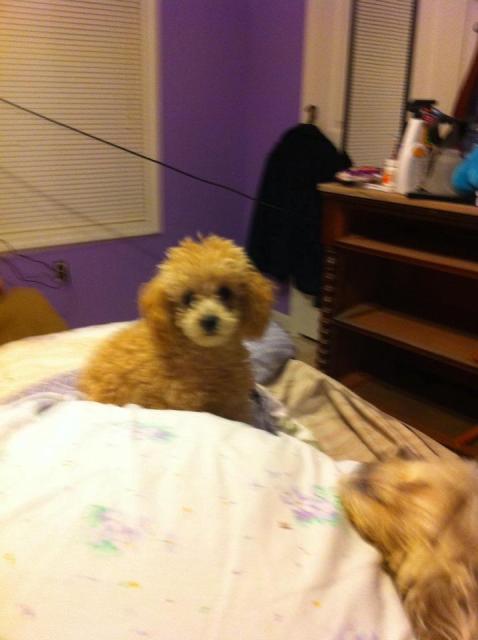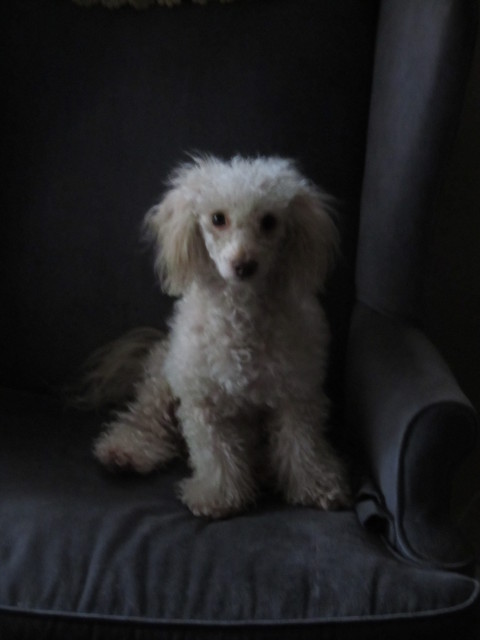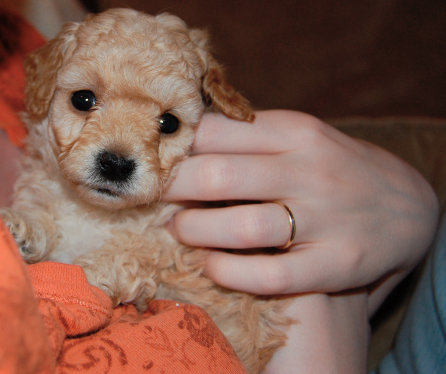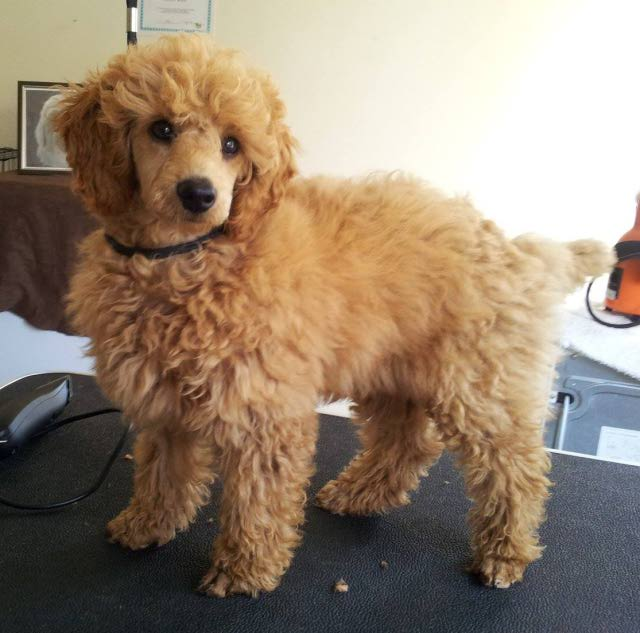QuestionQUESTION: I have a 7 month old toy poodle puppy who is afraid of the dark. He is an extremly intelligent dog, but freaks out and starts barking if he sees any shadows (even his own). I think it's kind of funny, but I would like to know if this is a problem you have heard about in other dogs, and If so, is there any way to get him over this fear.
ANSWER: Try building his confidence. Start with obedience training. The key to most behavior problems is approaching things using the dog's natural instincts. Dogs see all the people and dogs in the household as a pack with each having their own rank in the pack and a top dog. Life is much easier if the 2 legged pack members outrank the 4 legged ones. You can learn to play the role of top dog by reading some books or going to a good obedience class. A good obedience class or book is about you being top dog, not about rewarding standard commands with a treat. Start at http://www.dogsbestfriend.com/ As you praise the dog for following your commands, it will build its confidence.
Play tug of war with the dog and lose. However at the end of the game, take the rope or toy and put it up, less the dog becomes confused about who is top dog. Ropes from the pets' store quickly turn to hazardous shreds. Ones I made lasted much better. Go to a hardware or home center that sells rope by the foot. Buy 2' of 3/4" poly rope. Melt the ends, and tie knots in it. Get them as tight as possible, put it in a vise and pound it with a hammer. Watch carefully, and be ready to discard when it comes apart.
Finally, make sure it has a den to live in. If you are not using a crate, buy one. The dog may be happier in its den than loose in the house. It relaxes, it feels safe in its den. It rests, the body slows down reducing the need for water and relieving its self. Dogs that have been crated all along do very well. Many of them will rest in their crates even when the door is open. I think the plastic ones give the dog more of a safe, enclosed den feeling. Metal ones can be put in a corner or covered with something the dog can't pull in and chew. Select a crate just big enough for the full grown dog to stretch out in.
A dog that has not been crated since it was little, may take some work.
Start out just putting its toys and treats in the crate. Praise it for going
in. Feed it in the crate. This is also an easy way to maintain order at
feeding time for more than one dog.
---------- FOLLOW-UP ----------
QUESTION: I've rescued 2 other poodles and used the techniques you suggested on them.
I have been doing light obedience work with him since he was 9 weeks old, and I know he has plenty of confidence (he tried challenging our mini for dominance until we corrected him).
We play lots of games with him, including tug-of-war and fetching, as well flipping him on his back to make sure he understands that the 2 legged pack members are dominate.
His breeders introduced crates to him and his sisters from before they were able to even see, until the puppies were sent to there new homes, and we have continued crating him anytime he is unsupervised.
He has no other fears or behavioral problems besides shadows, and since I have never heard of a dog being afraid of the dark, I have no clue how to get him over this fear. I would greatly appreciate any suggestions you have to get him over his fear of dark or shadowy places without causing him any trauma, because I LOVE his personality and don't want to risk changing it trying to get him over this fear.
The other thing is, I am wondering if it could be an eye problem in low or no light, and if I should get his eyes checked by a vet, or try any other possible techniques first.
AnswerThe poor vision is a possibility. The standard way of checking a dog's vision is if its eyes will track your hand when you move it in front of its face. Sometimes holding a ball or a treat helps. That is usually for a total loss of vision. You might try it at different light levels. Whatever you find, talk to the vet about it.

 hey kim! my pups are grown but i have a ?
Questionrascal
QUESTION: Hey kim, my puppies ha
hey kim! my pups are grown but i have a ?
Questionrascal
QUESTION: Hey kim, my puppies ha
 Poodle short hair on his head
Question
Picasso 18 months
My 18 month old rescued pood
Poodle short hair on his head
Question
Picasso 18 months
My 18 month old rescued pood
 is my tiny poodle pup eating enough?
Question
oscar
We recently brought home our 8 week male
is my tiny poodle pup eating enough?
Question
oscar
We recently brought home our 8 week male
 Fading
Question
red maltipoo
Hi, Im going to be getting a dark
Fading
Question
red maltipoo
Hi, Im going to be getting a dark
 5 month Miniature Poodle
Question
Photo
Hi there - we have Barney, 5mth o
5 month Miniature Poodle
Question
Photo
Hi there - we have Barney, 5mth o